Different Buildings for Different Minds – Designing spaces and places for autism while creating truly inclusive communities.
Presenter: Shelly Dival, Autism Design Specialist, Enabling Spaces
Oral Presentation
Individuals with Autism often incur social, educational and economic challenges and discrimination. Autism can impact many facets of a person’s life, including the way a person relates to his or her environment. Interaction with our built environment can be particularly debilitating with social isolation and the inability to work effectively being just two examples of the impact of a poor environment. Currently in Australia there is minimal expertise across industry and government in understanding how to create neurological inclusive environments. Autism is the single largest disability group for participants of the NDIS at 29%.Combined with other neurological groups, the number climbs to 2/3rd of participants with no physical disability. Yet our building codes and policies, and community and industry models for inclusion only take into account physical disability.
To create truly inclusive communities we need to change the way we approach building design and community planning by ensuring neurological consideration in our decision making. Drawing on over 20 years in building design, reflecting on global research undertaken through a Churchill Fellowship, and her role as an international advisory board member for research, the author, whose work is gaining national and international attention, will take conference participants on a tour of global best practice in architecture when designing for autism. How architecture relates to, and enhances other services and programs to create enabling spaces for people with autism, others in the community such as those with dementia and even the neuro-typical.
Applied to the Australian context the discussion will include the current state of programs and research regarding autism and the built environment and how Australia has the opportunity to collaborate on a global scale and rise from having a limited knowledge base to becoming a leader in the field while working towards true inclusion policy and practice.
